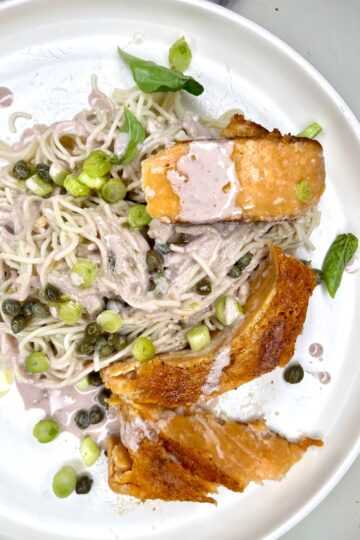
Gochujang, a staple in Korean cuisine, is a spicy and savory red pepper paste that has gained popularity worldwide for its unique flavor and versatility. Known for adding a bold, spicy kick to dishes, it’s commonly used in Korean cooking, from bibimbap to tteokbokki. However, for those with celiac disease or gluten sensitivity, the question arises: Is gochujang gluten-free?
What is Gochujang?
Gochujang is a traditional Korean red pepper paste made from glutinous rice flour, fermented soybeans, red pepper powder, and other ingredients like rice syrup or corn syrup. It undergoes a fermentation process that gives it its distinct umami flavor. The spicy paste is known for its exquisite balance of sweet, savory, and spicy flavors, making it a welcome addition to a variety of dishes.
Is Gochujang Gluten-Free?
The answer is not straightforward, as traditional gochujang often contains ingredients like barley malt powder or wheat, which are not gluten-free. However, with the growing demand for gluten-free options, many brands now offer gluten-free gochujang. These versions typically substitute gluten-containing ingredients with gluten-free alternatives such as brown rice or glutinous rice powder and fermented chickpeas instead of wheat-based ingredients.
Key Ingredients to Watch Out For
When determining whether gochujang is gluten-free, it’s crucial to check the full ingredients list. Here are some key ingredients to look for:
- Glutinous Rice Flour: While "glutinous" may sound like it contains gluten, it’s actually gluten-free. It’s made from sticky rice and is a main ingredient in traditional gochujang.
- Barley Malt Powder: A common ingredient in traditional gochujang, but not gluten-free. Look for versions that replace barley malt with other sweeteners like cane sugar or tapioca syrup.
- Soy Sauce: Some gochujang brands use soy sauce, which may contain gluten unless it’s a gluten-free version made with tamari or coconut aminos.
- Rice Syrup or Corn Syrup: Often used as sweeteners in gochujang. These are typically gluten-free but check product packaging to be sure.
- Yeast Extract: Commonly used to enhance the savory flavors in gochujang. It’s generally gluten-free but should still be verified on a product-by-product basis.
- Fermented Soybean Powder: Usually gluten-free but should be double-checked if you're highly sensitive.
How to Identify Gluten-Free Gochujang
To ensure that the gochujang you’re purchasing is gluten-free, look for the following:
- Product Packaging: Check for a gluten-free label on the product. This is the easiest way to confirm that the product is safe for a gluten-free diet.
- Full Ingredients List: Carefully review the ingredients, looking out for any gluten-containing items like barley, wheat, or certain types of soy sauce.
- Favorite Gluten-Free Gochujang Brands: Some brands specialize in gluten-free Korean food products. Research and find your favorite gluten-free gochujang brands that use alternative ingredients like brown rice or chickpea miso.
Gluten-Free Gochujang Substitutes
If you’re unable to find a gluten-free gochujang, you can try making your own or use alternatives like:
- Homemade Gluten-Free Gochujang: Use glutinous rice flour, red pepper flakes, soy miso (gluten-free), and a sweetener like coconut aminos or brown sugar.
- Spicy Sauce Substitutes: If making your own isn’t an option, consider using other gluten-free spicy sauces like Sriracha, though the flavor profile will be different.
FAQs
- Can I make gochujang at home?
Yes, making gochujang at home is an easy way to ensure it’s gluten-free. You can use ingredients like glutinous rice flour and chickpea miso for a homemade version. - What dishes can I use gluten-free gochujang in?
Gluten-free gochujang can be used in any recipe that calls for traditional gochujang, such as gochujang chicken, bibimbap, or as a dipping sauce for Korean fried dishes. - Is gochujang safe for celiac disease?
Gluten-free gochujang is safe for those with celiac disease, but always check the ingredients and labels to avoid any cross-contamination.
Conclusion
Gochujang is a popular Korean condiment that adds a spicy and savory flavor to many dishes. While traditional gochujang may contain gluten, there are plenty of gluten-free options available. By carefully checking the ingredients and labels, those with gluten sensitivities can enjoy the rich flavors of gochujang without worry. Whether you’re using it as a dipping sauce, in salad dressings, or in your favorite Korean dishes, gluten-free gochujang is a welcome addition to any kitchen.



